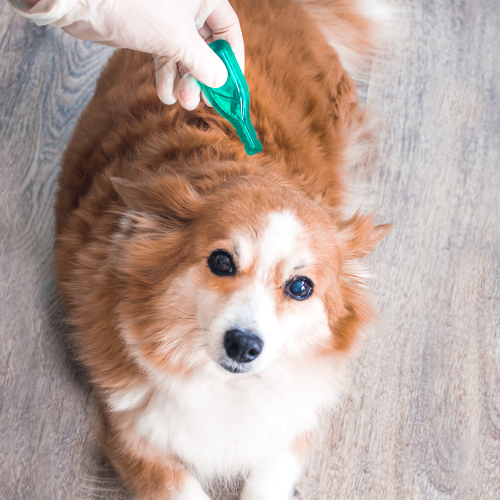
The Psychological Toll of Fleas: How Infestations Affect Your Pet's Well-Being
Flea infestations don't just cause physical discomfort for your beloved pets; they also take a toll on their psychological well-being. In this insightful exploration, we'll delve into the emotional and behavioral impact that fleas can have on dogs and cats, shedding light on the hidden consequences of these tiny pests.
The Silent Agony
Unseen Suffering
While the physical manifestations of flea infestations are apparent, the emotional distress experienced by pets often goes unnoticed. Dogs and cats, unable to communicate their discomfort verbally, exhibit subtle signs that reveal the psychological toll of these tiny but troublesome parasites.
Behavioral Changes
Agitation and Restlessness
One of the earliest signs of a flea-infested pet is increased agitation and restlessness. Constant itching and biting at the fur disrupt normal behaviors, leaving pets feeling on edge. This restlessness can escalate into behavioral issues such as excessive barking, pacing, or even aggression as a result of the persistent discomfort.
Avoidance and Isolation
Pets suffering from flea infestations may develop a tendency to avoid social interactions. The constant itchiness and irritation make them seek solace in isolation, distancing themselves from family members and other pets. This sudden withdrawal from normal activities is a clear indicator of the emotional strain caused by fleas.
Emotional Distress
Anxiety and Stress
Flea-infested pets often experience heightened levels of anxiety and stress. The continuous discomfort triggers a state of unease, leading to noticeable changes in behavior. Dogs may become excessively clingy, seeking constant reassurance, while cats may exhibit nervous behaviors such as excessive grooming or hiding.
Sleep Disturbances
The incessant itching caused by fleas can result in sleep disturbances for your pet. Dogs and cats may struggle to find a comfortable position, leading to disrupted sleep patterns. Over time, this lack of restorative sleep can contribute to further emotional distress, affecting their overall well-being.
Long-Term Effects
Depression-Like Symptoms
Chronic flea infestations can manifest as depression-like symptoms in pets. Persistent discomfort and the inability to find relief may lead to a subdued demeanor, lack of interest in activities, and a decrease in overall energy levels. Recognizing these signs is crucial for prompt intervention and effective flea control.
Impact on Bonding
The emotional toll of flea infestations extends to the human-pet bond. Owners may observe a shift in their pet's response to affection, with once-loving animals becoming hesitant or withdrawn. Rebuilding trust and restoring the bond requires addressing the root cause of the emotional distress – the fleas.
Preventive Measures and Treatment
Comprehensive Flea Control
To safeguard your pet's emotional well-being, comprehensive flea control is essential. Adopt a proactive approach that includes regular grooming, topical preventatives, and environmental management to create a flea-free haven for your furry friend.
Regular Veterinary Check-ups
Routine veterinary check-ups play a pivotal role in preventing and addressing flea infestations. Your veterinarian can recommend suitable preventive measures and tailor a flea control plan based on your pet's specific needs, ensuring their emotional and physical health are prioritized.
In conclusion, the psychological toll of flea infestations on dogs and cats is a crucial aspect of their overall well-being. Recognizing the signs of emotional distress and implementing proactive flea control measures are fundamental to maintaining a happy, healthy, and emotionally content pet. By understanding the silent agony caused by fleas, pet owners can ensure their furry companions lead fulfilling lives free from the psychological burdens imposed by these tiny yet impactful parasites.


